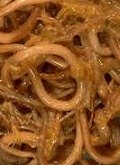International Travel Medical Insurance.
Don't Leave Home Without It.
Why does the intrepid traveller need International Travel Medical Insurance?
Because many exotic destinations in Africa, Asia and the Middle East harbor health hazards and life threatening diseases.
Disturbingly, a survey by leading market researchers Taylor Nelson Sofres of British tourists found;
- 25% set off with no health advice or vaccinations.
- 65% spent less than half an hour researching possible health risks.
- over 20% declined vaccinations when recommended.
Lying in wait are insects that bite, germs and parasites you can swallow, and weird bugs that harm on contact.
Uploaded by AnimalPlanetTV on Jul 31, 2009
A honeymoon in Africa turns into a nightmare for a New York woman after she is infected with the deadliest parasite on the planet... Malaria.
International Travel Medical Insurance.
Insect Borne Diseases.

Where to start?... Malaria, Japanese encephalitis, Dengue fever, Yellow fever, West Nile virus, Nipah virus, Rift Valley fever, Ross Valley virus, St Louis encephalitis, Typhus, Plague, etc. Still think you don't need International Travel Medical Insurance?
The best strategy with mosquitoes is to avoid being bitten:
- apply repellent to skin every few hours (it dissipates quickly). That's why repellents alone won't protect through the night.
- use insecticide impregnated clothing, nets and tents.
- Mosquitoes are less active in cool air-conditioned rooms and windy conditions (e.g fans).
- clear your environment with insect sprays, coils or burners/mats (although asthmatics need to be careful).
- electronic repellents are very questionable.
- cover up with long, loose, white clothing (black attracts and tight clothes are easier to bite through).
- Anopheles mosquitoes (Malaria) are most active outdoors early evening and at night.
- Aedes (Dengue) are most active daytime, especially afternoon.
- DEET repellents are very effective but may irritate eyes and mucous membranes, and should be used carefully with pregnant women and young children.
- Citronella seems to be effective but is short acting.
- Lemon eucalyptus (used in China) and Vitamin B may provide some protection.
Inspite of all your best efforts, if you are one of those unlucky people mosquitoes always seek out first (i.e your skin releases more lactic acid and carbon dioxide) you'll always be more at risk.
Tsetse fly ("sleeping sickness") , ticks, sandflies, and (Typhus and Plague transmitting) fleas only further complicate things. Very good reason to seek out professional advice from medical experts who can help protect you from these health hazards. Extemely good reason to have International Travel Medical Insurance in place.
Uploaded by AnimalPlanetTV on Jul 27, 2009
A brutal killer that kills up to 300,000 each year invades a traveler's blood... carried by a Tse Tse Fly.
International Travel Medical Insurance.
Travellers' Diarrhoea.

It is estimated 30-50% of travellers from the Western world will develope TD when visiting under-developed countries.
Rangoon Runs, Montezuma's Revenge, Bali Belly, Aden Gut... call it what you will... it's caused by a range of bacteria, parasites, viruses and other bugs. This health hazard affects the safety and security of millions of travellers each year. Some folks end up mighty sick and count themselves lucky they took out international travel medical insurance.
Facts About TD:- 90 percent of cases occur in first two weeks.
- 40 percent of travellers with TD will suffer disruption of itinerary.
- 30 per cent will end up bed ridden.
- 1 percent will end up in hospital.
- 3 percent will have TD last over 2 weeks.
- 1 to 2 percent will have TD over a month.
- most often occurs in Africa, Latin America, the Middle East, and Asia.
- People taking stomach acid reducing medication (proton pump inhibitors, etc) are at higher risk.
- as are people with a weak immune system ( on chemotherapy, etc).
- "Peel it, boil it, or forget it!"
- be very careful buying from street vendors unless very hot and fresh.
- Dry foods (breads, biscuits, etc) are safer... bugs like moisture and warmth to grow.
- fruits that must be peeled are safer... other fruits and vegetables must be cooked.
- local cuisine is safer than attempts by restaurants to reproduce Western menus.
- salads are high risk. Some farmers use sewerage as fertilizer.
- shell fish are high risk, as are fish from polluted waters.
- avoid open buffets and cold sauces.
- avoid unpasteurised dairy products and icecream.
- infection can be picked up from contaminated cutlery.
- avoid ice cubes in drinks.
- drink bottled water (buy "carbonated" if worried about contaminated "counterfeit" water).
- maintain good personal hygiene; wash hands regularly and carry hand wipes.
Tropical Diseases Of Contact.

Schistosomiasis are small parasitic worms found in fresh water in Africa, eastern South America, the Caribbean, the Middle East and southeast Asia.
Eggs from the worm are passed into fresh water from the urine of infected humans where they develope into larvae and invade fresh water snails. Thousands of new parasites are soon being released from the snails which can then penetrate the skin of swimmers.
Some swimmers may notice a local irritation of the skin and some may develope a fever. Others, however, may not show symptoms for months or years. Mature worms eventually invade the bladder or intestine where they cause inflammation and tissue damage and bleeding. Chronic anaemia can result if left untreated.
A particular hotspot is Lake Malawi in Africa where 133 cases were reported among British tourists alone in 1998. Some of these weren't covered by international travel medical insurance.
Leptospirosis is another parasite passed onto humans from the urine of animals and rhodents. It is carried on the surface of water and can enter breaks in the skin and mucous membranes eventually causing liver or renal damage. The fatality rate can be as high as 30 per cent.
Dracunculosis (Guinea worm) can be picked up drinking from contaminated wells. Ascariasis and Tape worm can result from eating poorly prepared food.
And even the beaches aren't safe.

Just walking barefoot along some beaches exposes you to the risk of picking up hook worms. The worms are parasites of dogs and can pose a problem where the animals have been urinating or defecating.
So what's the moral?
Don't let these potential hazards deter you from travelling... just do it sensibly. Be an informed, savvy traveller.
Don't end up languishing in some foreign hospital bed knowing you're not covered by International Travel Medical Insurance.
VIDEO of the dreaded Amazonian Candiru......Also known as the "Vampire" or "Penis" fish.
This is a Health Hazard you really want to stay clear of.
Who Ate My Lunch?
by Eugene Roberts

The Internet Revolution, Globalization, and the Global Financial Crisis created the perfect storm... Old Business models are being destroyed and jobs are disappearing offshore at an astonishing rate. Analysts warn that "China and India are poised to out-think us and out-compete us by their sheer numbers" and that "there is no job security now".
Read more of
Who Ate My Lunch?
for free.






